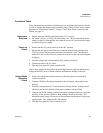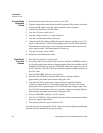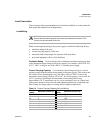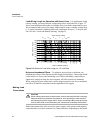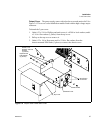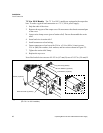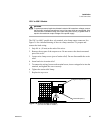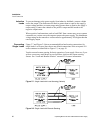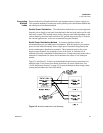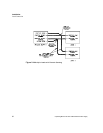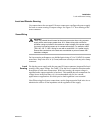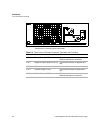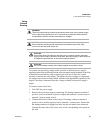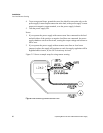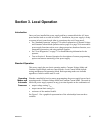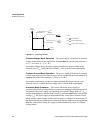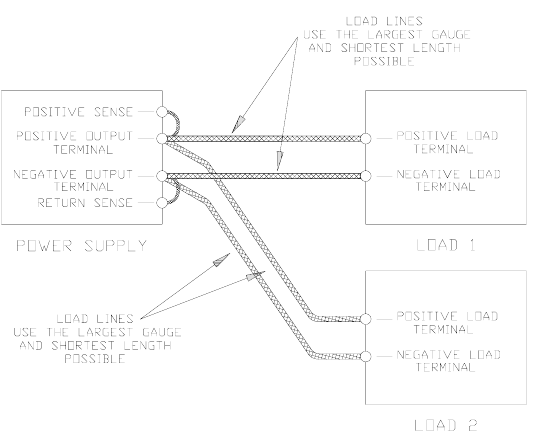
Installation
Load Connection
Release 2.1 51
Connecting
Multiple
Loads
Proper connection of distributed loads is an important aspect of power supply use.
Two common methods of connection are the parallel power distribution method and
the radial power distribution method.
Parallel Power Distribution This distribution method involves connecting leads
from the power supply to one load, from that load to the next load, and so on for each
load in the system. This method results in the voltage at each load depending on the
current drawn by the other loads and allows DC ground loops to develop. Except for
low current applications, we do not recommend using this method.
Radial Power Distribution Method To connect distributed loads, we
recommend that you use radial power distribution. With this method, you connect
power to each load individually from a single pair of terminals designated as the
positive and negative distribution terminals. These terminals may be the power
supply output terminals, the terminals of one of the loads, or a distinct set of
terminals especially established for distribution use. Connect the sense leads to these
terminals to compensate for losses and to minimize the effect of one load upon
another.
Figure 2.9 and Figure 2.10 show recommended load and sensing connections for
multiple loads. Local sense lines shown are default J10 sense connections. See
“Local and Remote Sensing” on page 53 for more information about using remote
sensing and grounding the sense line shield.
Figure 2.9 Multiple Loads with Local Sensing



